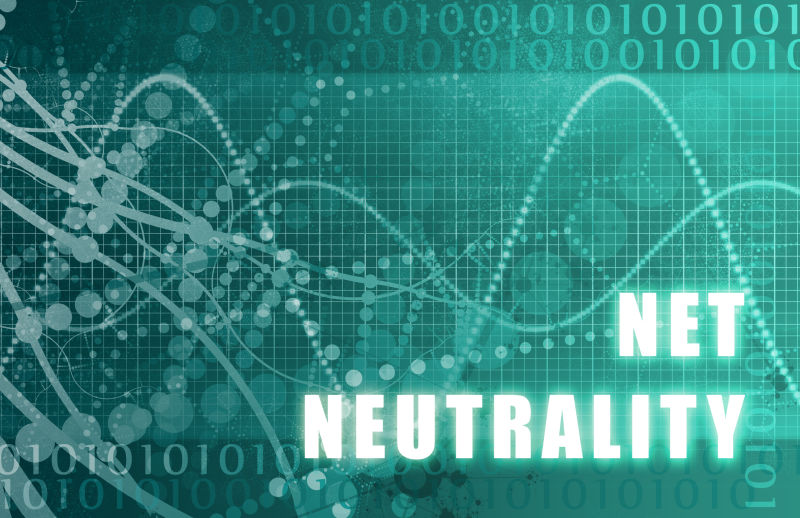
The Electronic Frontier Foundation (EFF) has accused T-Mobile USA of violating net neutrality principles with a new "unlimited" data plan that throttles video. The group is weighing whether to file a complaint with the Federal Communications Commission, and the EFF is evaluating a similar offering from Sprint.
T-Mobile's $70-per-month unlimited data plan limits video to about 480p resolution and requires customers to pay an extra $25 per month for high-definition video. The plan also throttles mobile hotspot connections unless customers pay an extra $15 for each 5GB allotment. Going forward, this will be the only plan offered to new T-Mobile customers, though existing subscribers can keep their current prices and data allotments.
"From what we've read thus far it seems like T-Mobile's new plan to charge its customers extra to not throttle video runs directly afoul of the principle of net neutrality," EFF Senior Staff Technologist Jeremy Gillula told the Daily Dot.
The FCC's net neutrality rules include a ban on throttling. But there's a difference between violating "the principle of net neutrality" and violating the FCC's specific rules, which have exceptions to the throttling ban and allow for case-by-case judgments.
When contacted by Ars today, Gillula said the EFF is still examining the plan and that it's too early to tell whether the group will file a complaint.
The FCC rules make some allowances for cases where a customer chooses a different level of service.
"Because our no-throttling rule addresses instances in which a broadband provider targets particular content, applications, services, or non-harmful devices, it does not address a practice of slowing down an end user’s connection to the Internet based on a choice made by the end user," the FCC's Open Internet Order says. "For instance, a broadband provider may offer a data plan in which a subscriber receives a set amount of data at one speed tier and any remaining data at a lower tier."
That would seem to give the green light to older T-Mobile plans that slow customers down for the rest of the month after they hit their data caps unless the customer purchases more high-speed data.
Throttling entire classes of applications
But Gillula argues that the throttling of all video might violate the rule, despite the option to pay for high-speed video. He pointed to a sentence later in the same paragraph that says, "if a broadband provider degraded the delivery of a particular application (e.g., a disfavored VoIP service) or class of application (e.g., all VoIP applications), it would violate the bright-line no-throttling rule."
"If you just substitute 'video' in for 'VoIP,' it's pretty clear that the FCC's intent was to prevent discriminatory throttling, even if the user could pay to avoid it," Gillula told Ars. "In other words, the FCC (and EFF) are just fine with ISPs offering different tiers of service, as long as the tiers don't discriminate against different types of content. But that's precisely what T-Mobile is doing here—discriminating against data based on its content."
Sprint announced a similar unlimited data plan yesterday that reduces bandwidth for video, gaming, and music. Gillula said he hasn't examined Sprint's plan in enough detail to comment on whether it violates net neutrality, but he noted the EFF should have something to say on it soon.
Unlike T-Mobile, Sprint will apparently continue to offer plans that have data limits but no throttling of video and other types of applications.
An FCC spokesperson said the commission hasn't received any formal complaints against T-Mobile or Sprint. The commission declined to comment specifically on the T-Mobile and Sprint plans: “The Commission's informal policy review is ongoing. Chairman [Tom] Wheeler said the Commission would keep an eye on new developments in this area and we are continuing to do so.”
The FCC was already examining T-Mobile's throttling of video in "Binge On," a T-Mobile program that reduces video quality while exempting video services from data caps if the services meet certain technical requirements. The new unlimited plan eliminates the need for data cap exemptions (also known as zero-rating), though Binge On could still be applied to existing plans with monthly data limits.
Because of Binge On, T-Mobile and the EFF have sparred over throttling before. T-Mobile CEO John Legere reacted to criticism in January by posting a video in which he asked, "who the fuck are you, anyway, EFF? Why are you stirring up so much trouble, and who pays you?" He later softened his tone, saying that he isn't waging a "personal campaign against EFF."
T-Mobile did not respond to an interview request Friday. Sprint offered a response to Ars, saying, "The FCC's open Internet decision encourages giving customers the opportunity to choose plans with different performance options. Allowing customers to select plans that have performance options tailored to different needs or different classes of applications is good for consumers, net neutrality, and mobile competition."
reader comments
129